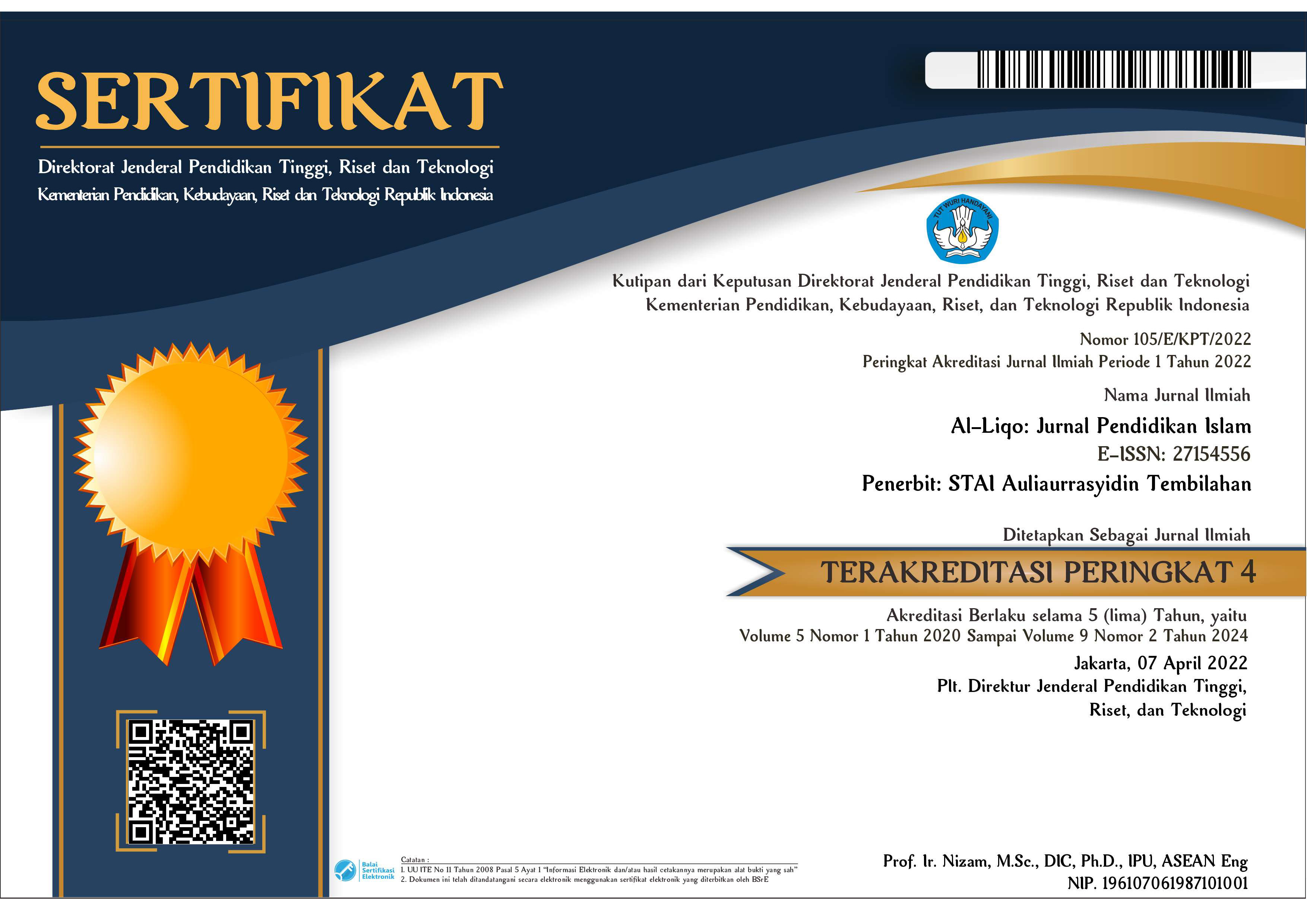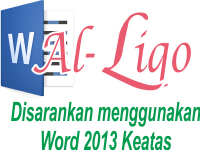Implementasi Nilai-Nilai Muatan Al-Quran Hadits dalam Kehidupan Siswa
DOI:
https://doi.org/10.46963/alliqo.v7i1.495Keywords:
Values, Al Qur'an HadithAbstract
Al-Quran Hadith subjects in it contain faith in Allah, as well as how to behave that reflects good faith in the daily environment of students, the behavior of someone who loves the Qur'an and much more. This research uses descriptive qualitative research method. The data are descriptive in nature, namely in the form of symptoms that can be categorized or in other forms such as in the form of words, pictures, documents during the research process. Data collection techniques used are interviews, and documentation. Then the existing data was analyzed by going through several stages, namely data reduction, data presentation, and drawing conclusions. Students who little by little can read the Koran at school, practice the importance of courtesy towards their elders. Study earnestly in their TPA how to read the Quran properly. The benchmark for success in delivering Al-Quran Hadith material is that there are several factors, namely the teacher being an example for his students, the teacher getting used to smiling, greeting, and greeting, the teacher also getting used to praying on time, throwing garbage in its place.
Downloads
References
Ghazali, D., Gunawan, & Heri. (2015). STUDI ISLAM: Suatu Pengantar Dengan Pendekatan Disipliner. Bandung: PT Remaja Rosdakarya
Harsono, Hanifah. (2002). Implementasi Kebijakan dan Polik. Jakarta: Rineka Cipta.
Helmawati. (2017). Pendidikan Karakter Sehari-hari. Bandung: PT Remaja Rosdakarya
Jalaluddin. (2016). Pendidikan Islam Pendekatan Sistem Dan Proses. Jakarta: PT Raja Grafindo Persada.
Majid, Abdul. (2012). BELAJAR DAN PEMBELAJARAN: Pendidikan Agama Islam. Bandung: PT Remaja Rosdakarya
Qomar, Mujamil. (2015). Dimensi Manajemen Pendidikan Islam.Emir: Penerbit Erlangga
Rohman, Miftahur, & Hairudin. (2018).Konsep Tujuan Pendidikan Islam Perspektif Nilai-Nilai Sosial Kultural. al-Tadzkiyyah: Jurnal Pendidikan Islam. 09 (1) :21-33
Supiana. (2017). Metodologi Studi Islam. Bandung: PT Remaja Rosdakarya
Downloads
Published
Issue
Section
License
Authors who publish with this journal agree to the following terms:
1. Copyright on any article is retained by the author(s).
2. The author grants the journal, right of first publication with the work simultaneously licensed under a Creative Commons Attribution shareAlike 4.0 International License that allows others to share the work with an acknowledgment of the work’s authorship and initial publication in this journal.
3. Authors are able to enter into separate, additional contractual arrangements for the non-exclusive distribution of the journal’s published version of the work (e.g., post it to an institutional repository or publish it in a book), with an acknowledgment of its initial publication in this journal.
4. Authors are permitted and encouraged to post their work online (e.g., in institutional repositories or on their website) prior to and during the submission process, as it can lead to productive exchanges, as well as earlier and greater citation of published work.
5. The article and any associated published material is distributed under the Creative Commons Attribution-ShareAlike 4.0 International License







2.png)



